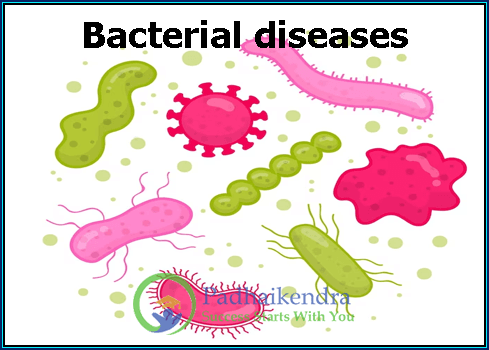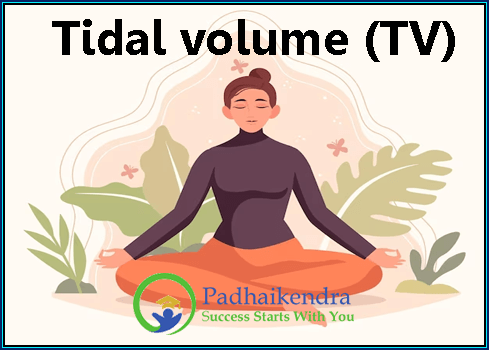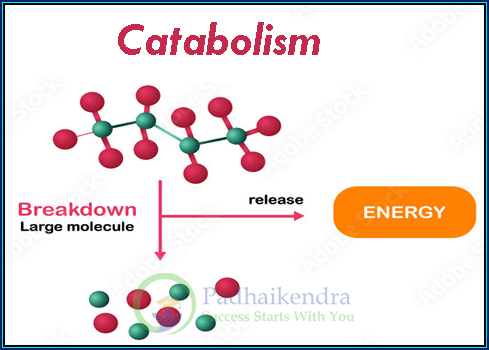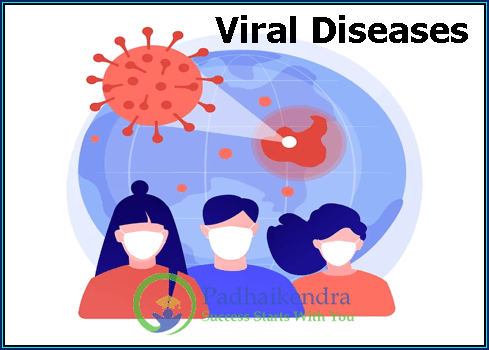What is the Pituitary Gland?
The pituitary gland, often called the “master gland,” is a pint-sized powerhouse nestled snugly in your brain. It might not look like much, but don’t let its size fool you; this gland is a real VIP (Very Important Pea-sized) in your body’s command center.
Where is the Pituitary Gland Located?
Now, you might be wondering where exactly this superstar resides. Well, the pituitary gland has a prime spot just beneath the brain, right behind your nose and eyes. Imagine it as your brain’s neighbor, always ready to chat with the big boss, your hypothalamus, and the rest of your body.
Anatomy of the Pituitary Gland
What Are the Parts of the Pituitary Gland?
The pituitary gland is like a two-in-one deal. It has two main parts, the anterior and posterior pituitary, each with its own set of duties.
- Anterior Pituitary: This part is the action hero of the duo. It produces and releases hormones that control many things like growth, thyroid function, and more. It’s like the conductor of your body’s orchestra.
- Posterior Pituitary: This is the storage unit. It stores hormones made by the hypothalamus, like oxytocin and vasopressin, and releases them when needed. It’s like your body’s vending machine, giving you the right hormones at the right time.
How Big is the Pituitary Gland?
You’d think something this crucial might be sizable, but nope, the pituitary gland is surprisingly tiny. It’s about the size of a pea, which is pretty impressive when you consider the enormous job it has.
So, there you have it! The pituitary gland might be small, but it’s an absolute champ in the world of body regulation. It helps keep your body in harmony, making sure everything runs smoothly. Stay tuned for more exciting pituitary gland adventures!
What is the Function of the Pituitary Gland?
The pituitary gland might be small, but its role is massive. It acts as the body’s command center, orchestrating the release of hormones that control many vital functions. Think of it as your body’s wise manager, making sure everything is in tip-top shape.
From regulating growth and metabolism to influencing stress responses and fertility, the pituitary gland wears many hats. It’s the puppeteer behind the scenes, pulling the strings to keep your body’s show running smoothly.
How Does the Hypothalamus and Pituitary Gland Interact?
The pituitary gland and the hypothalamus are like the dynamic duo of your brain. The hypothalamus, a small region nearby, sends signals to the pituitary gland, telling it when and how much of a particular hormone to release.
Picture it like this: the hypothalamus is the director, while the pituitary gland is the star actor. The director gives cues, and the actor delivers the performance. This dynamic duo ensures your body’s hormones are released precisely when needed, maintaining the delicate balance of your internal world.
How Does the Pituitary Gland Affect Other Organs and Glands?
The pituitary gland doesn’t work in isolation; it’s more like the maestro leading a symphony of hormones. Its hormones travel through your bloodstream to reach target organs and glands, telling them what to do.
For instance, growth hormone (GH) from the pituitary tells your bones and muscles to grow. Thyroid-stimulating hormone (TSH) makes sure your thyroid gland produces enough thyroid hormones to regulate your metabolism. And there’s more, like adrenocorticotropic hormone (ACTH), which helps control your stress response by telling the adrenal glands to produce cortisol.
In short, the pituitary gland acts as your body’s messenger, ensuring that all the different parts of your body communicate and work together harmoniously.
And there you have it, the pituitary gland’s remarkable functions and connections. This small but mighty gland plays a pivotal role in keeping your body in tune, making it a true unsung hero in the symphony of life. Stay tuned for more pituitary gland adventures!
Hormones Secreted by the Pituitary Gland
Which Hormones Does the Pituitary Gland Make?
The pituitary gland is like a hormone factory, churning out a variety of hormones that have a profound impact on your body. It’s divided into two main sections: the Anterior and Posterior pituitary glands, each responsible for its own hormone roster.
Anterior Pituitary Hormones
- Growth Hormone (GH): This hormone is like your body’s construction worker. It helps tissues and bones grow, ensuring you reach your full height potential during childhood and maintain muscle and bone mass throughout your life.
- Prolactin (PRL): If you’re planning to be a parent, PRL is your wingman. It stimulates breast milk production in new moms, making sure those little ones get the nourishment they need.
- Thyroid-Stimulating Hormone (TSH): TSH is the cheerleader for your thyroid gland. It encourages your thyroid to release thyroid hormones, which regulate your metabolism, energy levels, and body temperature.
- Adrenocorticotropic Hormone (ACTH): When stress strikes, ACTH steps up. It prompts your adrenal glands to release cortisol, the stress hormone, helping you deal with life’s challenges.
- Follicle-Stimulating Hormone (FSH) and Luteinizing Hormone (LH): These two hormones are like Cupid’s helpers. They regulate your reproductive system, ensuring normal sexual development and fertility.
Posterior Pituitary Hormones
- Oxytocin: Known as the “love hormone” or “cuddle chemical,” oxytocin plays a vital role in social bonding, childbirth, and lactation.
- Vasopressin (Antidiuretic Hormone, ADH): This hormone is your body’s waterworks manager. It helps control water balance by regulating how much water your kidneys release or conserve.
What Hormones Does My Pituitary Gland Produce?
Your pituitary gland is like your body’s personal endocrine system manager, producing the right hormones at the right times. It keeps a watchful eye on your body’s needs and responds accordingly.
So, there you have it—a glimpse into the hormone-rich world of the pituitary gland. These chemical messengers work tirelessly behind the scenes to ensure your body functions like a well-oiled machine. Stay tuned for more hormone-related adventures!
Pituitary Disorders
What Could Go Wrong with My Pituitary Gland?
Just like any superstar, the pituitary gland isn’t immune to mishaps. Several things could throw it off balance, resulting in a variety of disorders. Let’s explore a few common pitfalls:
Hypersecretion Conditions: Sometimes, the pituitary gland goes into overdrive, producing too much of certain hormones. This can lead to conditions like:
- Gigantism and Acromegaly: Excessive growth hormone can cause abnormal growth, leading to gigantism in kids and acromegaly in adults, characterized by enlarged hands, feet, and facial features.
- Hyperprolactinemia: Too much prolactin can cause issues like irregular periods, infertility, and even milk production in non-pregnant individuals.
- Cushing’s Disease: Overproduction of adrenocorticotropic hormone (ACTH) can result in excess cortisol production, causing symptoms like weight gain, high blood pressure, and mood changes.
Hyposecretion Conditions: On the flip side, the pituitary gland might not produce enough hormones, leading to problems like:
- Dwarfism: Insufficient growth hormone during childhood can lead to stunted growth, resulting in dwarfism.
- Diabetes Insipidus: When the posterior pituitary fails to release enough vasopressin (antidiuretic hormone, ADH), it can lead to excessive thirst and urination.
Pituitary Tumors: Sometimes, tumors can form in the pituitary gland. These can be non-functioning, causing issues due to their size or functioning tumors that produce excess hormones.
Sheehan Syndrome: This condition occurs when the pituitary gland is damaged during childbirth due to reduced blood flow. It can lead to hormone deficiencies and affect various body functions.
Can you live without a Pituitary Gland?
The short answer is no, you can’t live without your pituitary gland. It’s just too important! The hormones it produces are vital for your body’s proper functioning. If the entire pituitary gland is removed (a procedure known as a complete hypophysectomy), hormone replacement therapy becomes necessary to replace the lost hormones.
In essence, the pituitary gland, though small, is a vital cog in the intricate machinery of your body’s endocrine system. When things go awry, medical intervention and hormone replacement can often help restore balance and improve your quality of life.
So, there you have it, a glimpse into the potential pitfalls and challenges the pituitary gland may face. But fear not; with medical advances and treatment options, many pituitary disorders can be managed effectively, allowing you to continue on your life’s journey. Stay tuned for more explorations into the world of the pituitary gland!
Anterior Pituitary Hormones
Greetings, fellow knowledge seekers! we’ll uncover the incredible army of hormones that the anterior pituitary gland deploys into your body. These tiny chemical messengers have big roles to play, so let’s dive right in.
Function of Hormones Secreted By Pituitary Gland
The anterior pituitary gland, often dubbed the “frontline commander,” is in charge of producing several key hormones, each with a specific mission:
- Growth Hormone (GH): This hormone is your body’s construction manager. It oversees the growth of tissues, bones, and muscles, ensuring that kids grow up tall and strong. Even in adults, GH continues to help with maintaining muscle and bone mass.
- Prolactin (PRL): PRL is like the maestro of milk production. It’s responsible for stimulating breast milk production in new moms, ensuring that infants get the nourishment they need during those early days.
- Thyroid-Stimulating Hormone (TSH): TSH is the motivational speaker for your thyroid gland. It encourages the thyroid to release thyroid hormones, which regulate your metabolism, energy levels, and body temperature. It’s the reason you feel awake and energetic.
- Adrenocorticotropic Hormone (ACTH): ACTH is your body’s stress responder. When the going gets tough, it prompts your adrenal glands to produce cortisol, the stress hormone, helping you tackle challenges and keep your cool.
- Follicle-Stimulating Hormone (FSH) and Luteinizing Hormone (LH): These two hormones are your body’s matchmakers. They oversee the reproductive system, ensuring that puberty hits the right notes and that you’re fertile when you need to be.
Imagine the anterior pituitary gland as a control center, monitoring your body’s needs and orchestrating the release of these hormones to maintain balance. It’s like your body’s very own management team, making sure everything runs like a well-oiled machine.
So, there you have it—the incredible lineup of hormones secreted by the anterior pituitary gland. Each one plays a vital role in your daily life, from growth to stress management to reproduction. Stay tuned for more hormone-related adventures!
Posterior Pituitary Hormones
Now, let’s get to know the two main hormones produced and released by the posterior pituitary gland:
- Oxytocin: This hormone often goes by the nickname “the love hormone” or “the cuddle chemical.” Oxytocin is all about bonding and affection. When you hug a loved one, share a tender moment, or even during childbirth, oxytocin levels rise. It’s responsible for strengthening social bonds, triggering uterine contractions during labor, and promoting the release of breast milk during breastfeeding. So, it’s like your body’s own love potion.
- Vasopressin (Antidiuretic Hormone, ADH): Vasopressin is the unsung hero of water balance. It helps regulate how much water your kidneys release or conserve, preventing you from becoming a human water fountain. When you’re thirsty, and your body needs to hold onto water, vasopressin steps in to keep you hydrated. It’s like the body’s waterworks manager, ensuring you stay in tip-top shape.
Posterior Pituitary’s Role
Unlike the anterior pituitary, which produces its hormones, the posterior pituitary stores and releases hormones produced by the hypothalamus. Think of it as a reliable courier service, transporting these hormones to where they’re needed in your body.
Oxytocin and vasopressin are both essential for maintaining your body’s internal harmony. They might not be as famous as some other hormones, but they play crucial roles in your everyday life, from forming emotional connections to staying properly hydrated.
And there you have it, the enigmatic world of posterior pituitary hormones unveiled. These two hormones might not be as numerous as their anterior counterparts, but they sure know how to pack a punch when it comes to keeping you healthy and happy. Stay tuned for more pituitary gland adventures!
Conclusion
In our exploration of the pituitary gland, we’ve uncovered a petite yet powerful presence within your body. Situated discreetly beneath your brain, this unassuming mastermind orchestrates a symphony of hormones, ensuring the harmonious functioning of your entire system.
In closing, the pituitary gland, though lacking the fame of its endocrine counterparts, is undoubtedly a powerhouse. It stands as a living testament to the captivating intricacies of the human body. As you navigate your daily life, spare a moment to acknowledge the vital contribution of your pituitary gland, the unsung hero ensuring that the symphony of your health plays on harmoniously.





